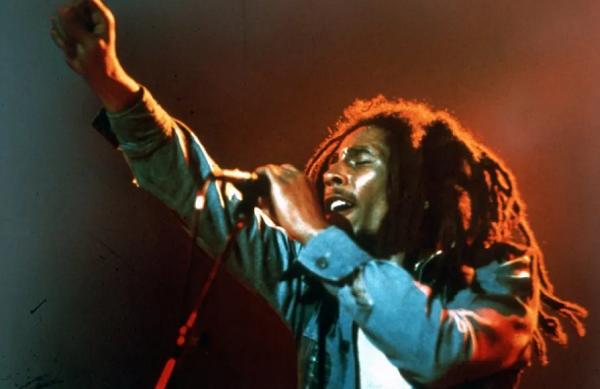
In view of the recently premiered Bob Marley biopic, One Love, BBC shares four lesser-known facts about the singer:
The new film, One Love, celebrates the life and career of the legendary Jamaican reggae musician, Bob Marley. The film charts the musician’s journey from his rural Jamaican childhood to superstardom and features some well-known stories and events. But there are many facts about the icon that are less well known. Here are four of them.
1. J-Reggae icon
Did you know Bob Marley helped popularise reggae in Japan?
In 1975, Marley visited Japan. According to the Japanese magazine Sabukaru, the singer became good friends with renowned percussionist Masahito “Pecker” Hashida. This led to a musical collaboration on two influential albums – Pecker Power in 1980 (featuring Marley) and Instant Rasta 1981, both of which were recorded at Channel One Studios in Jamaica. The albums featured both Jamaican and Japanese artists and played an important role in spreading reggae’s popularity in Japan.
Reggae is popular in Japan to this day and is celebrated at events such as the well-known Yokohama reggae festival or Yokohama Reggae Sai, which takes place every summer between July and September.
2. UN award winner
Marley is well known for his socially conscious and political song lyrics. But did you know that in 1978, he was awarded a peace medal by the United Nations? This was for the singer’s work in promoting peace and justice at a time of political unrest in Jamaica.
Earlier that year, Marley had performed at the One Love Peace concert in Kingston, Jamaica. The concert was aimed at easing sectarian gang violence and Marley had famously brought together political rivals to shake hands on stage. The UN accolade was bestowed on the singer a few months later at the Waldorf Astoria in New York, presented by the African delegation to the United Nations.
3. Palm reader
Before he became a musician, Bob Marley was a palm reader in his hometown of St Ann in Jamaica. As a child, he would read the palms of friends and neighbours to tell them what the future held in store. According to the singer’s close friend and confidante, Allan “Skill” Cole, many of Marley’s predictions had a degree of accuracy and he described the singer as a “natural mystic”.
But Cole, who managed Marley’s concert tours during the 1970s, also said the practice of palm reading was frowned upon in Jamaica at the time. The Rastafarian community around Marley urged him to give up palm reading. Marley agreed, but not before correctly predicting that he would one day build his own recording studio.
4. Chrysler factory worker
While struggling to make money as a musician, Marley briefly worked in a Chrysler automobile plant in the US state of Delaware. In 1966, despite a few Ska hits in Jamaica, Marley still hadn’t made his mark in the music industry.
So he left his home country for Wilmington, Delaware where his mother, Cedella Booker, had been living since the death of Marley’s father in 1955. During his 10-month stay, the singer worked in the Chrysler assembly line and operated a forklift after dark. According to friends, the latter job inspired his song Night Shift, which appeared in his 1976 album Rastaman Vibration.
For original article, see https://www.bbc.com/news/world-africa-68279304
In view of the recently premiered Bob Marley biopic, One Love, BBC shares four lesser-known facts about the singer: The new film, One Love, celebrates the life and career of the legendary Jamaican reggae musician, Bob Marley. The film charts the musician’s journey from his rural Jamaican childhood to superstardom and features some well-known stories






